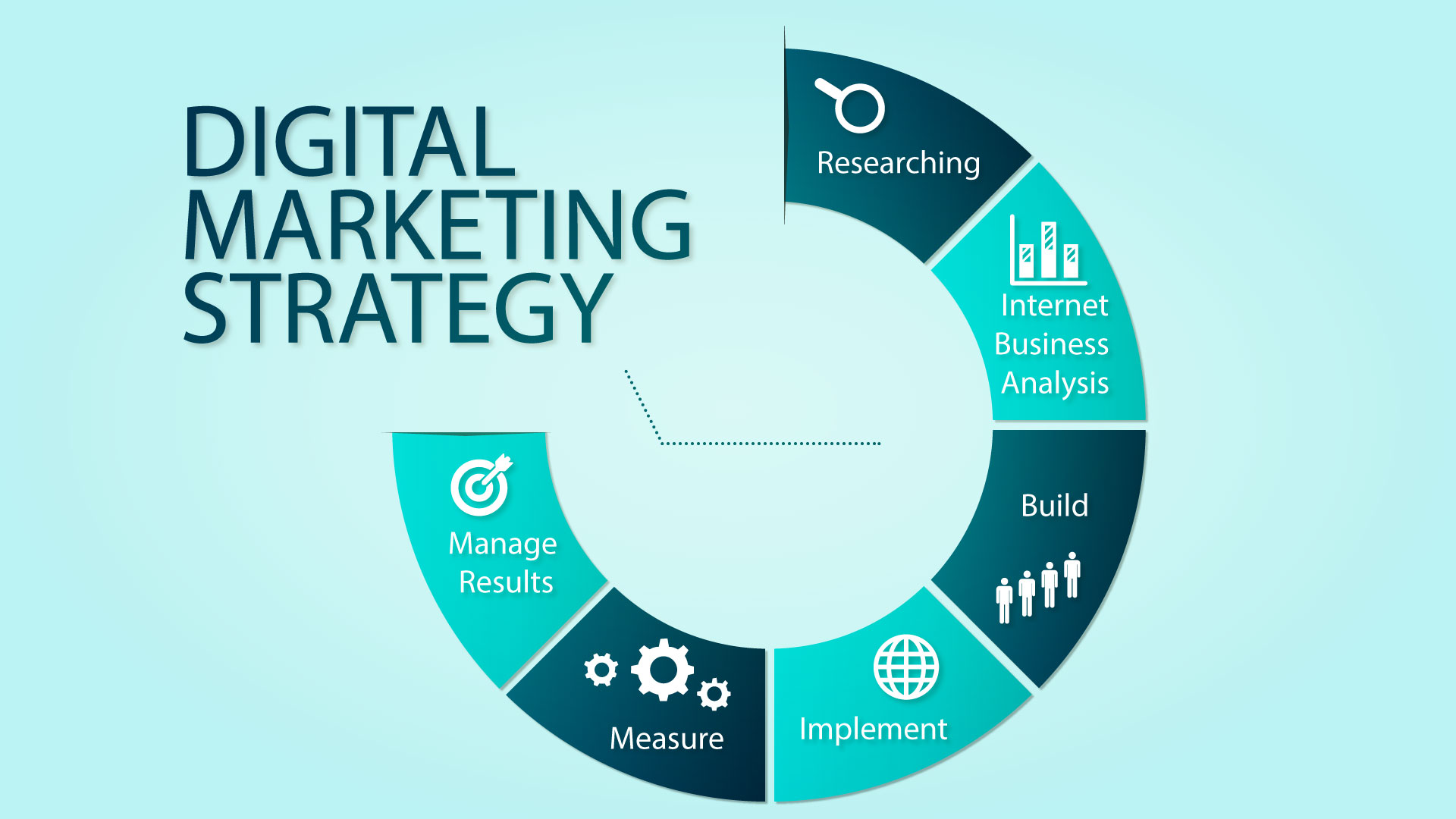In today’s digitally-driven world, having a robust digital marketing strategy is essential for businesses of all sizes. The ever-evolving landscape of online marketing demands a carefully crafted approach that enables companies to connect with their target audience, increase brand visibility, and drive measurable results. In this article, we will delve into the intricacies of developing a powerful digital marketing strategy that can help businesses thrive in the competitive digital realm.

Table of Contents:
- Understanding Digital Marketing Strategy
- Setting Clear Goals and Objectives
- Conducting Market Research
- Identifying Target Audience
- Crafting a Compelling Value Proposition
- Choosing the Right Digital Channels
- Building a Content Marketing Strategy
- Implementing Search Engine Optimization (SEO)
- Leveraging Social Media Marketing
- Harnessing the Power of Email Marketing
- Embracing Influencer Marketing
- Monitoring and Analyzing Performance
- Embracing Emerging Trends in Digital Marketing
- Conclusion
- Understanding Digital Marketing Strategy:
Digital marketing strategy refers to a comprehensive plan that outlines how a company will utilize various online platforms, tools, and techniques to achieve its marketing goals. It involves leveraging digital channels such as search engines, social media, email, and websites to connect with potential customers and build long-term relationships.
- Setting Clear Goals and Objectives:
The first step in developing an effective digital marketing strategy is setting clear, measurable goals and objectives. These goals can range from increasing website traffic and generating leads to boosting sales and enhancing brand awareness. By defining specific objectives, businesses can align their efforts and evaluate their success accurately.
- Conducting Market Research:
Before diving into the digital marketing landscape, it is crucial to conduct thorough market research. This involves analyzing industry trends, competitor strategies, and consumer behavior. Understanding the target market’s preferences, pain points, and online habits can provide valuable insights that shape the overall strategy.
- Identifying Target Audience:
To create impactful digital marketing campaigns, businesses must identify their target audience. By segmenting the audience based on demographics, psychographics, and behavior patterns, companies can tailor their messaging and content to resonate with the intended recipients effectively.
- Crafting a Compelling Value Proposition:
A compelling value proposition is at the core of a successful digital marketing strategy. It articulates the unique value and benefits a company offers to its customers, differentiating it from competitors. The value proposition should be incorporated into all digital marketing efforts to create a consistent and compelling brand image.
- Choosing the Right Digital Channels:
There are numerous digital channels available to marketers, and selecting the most suitable ones for a particular business is crucial. From search engine marketing (SEM) and social media to content marketing and email marketing, each channel has its strengths and target audience. Aligning the chosen channels with the target market’s preferences ensures maximum engagement and reach.
- Building a Content Marketing Strategy:
Content marketing plays a pivotal role in any digital marketing strategy. Creating valuable, informative, and engaging content allows businesses to establish thought leadership, build trust with their audience, and attract organic traffic. A well-defined content marketing strategy outlines the types of content to create, the platforms to distribute it on, and the frequency of publishing.
- Implementing Search Engine Optimization (SEO):
Search engine optimization (SEO) is a vital component of any digital marketing strategy. It involves optimizing a website’s content, structure, and technical aspects to improve its visibility in search engine results pages (SERPs). By implementing effective SEO practices, businesses can increase organic traffic and rank higher for relevant keywords.
- Leveraging Social Media Marketing:
Social media has revolutionized the way businesses connect with their target audience. A well-executed social media marketing strategy allows companies to engage with their customers, build brand awareness, and drive website traffic. Understanding the intricacies of each social media platform and tailoring the content to fit the target audience is crucial for success.
- Harnessing the Power of Email Marketing:
Email marketing remains one of the most effective digital marketing channels. Building a solid email list and sending targeted, personalized emails can generate high conversion rates and nurture customer relationships. Automation tools and segmentation techniques enable businesses to deliver the right message to the right people at the right time.
- Embracing Influencer Marketing:
Influencer marketing has gained significant traction in recent years. Collaborating with influencers in the industry can help businesses expand their reach, build credibility, and tap into new markets. Finding influencers whose values align with the brand and developing authentic partnerships can yield impressive results.
- Monitoring and Analyzing Performance:
Measuring the success of a digital marketing strategy is essential to identify what’s working and what needs improvement. By tracking key performance indicators (KPIs) such as website traffic, conversion rates, social media engagement, and email open rates, businesses can make data-driven decisions and optimize their campaigns accordingly.
- Embracing Emerging Trends in Digital Marketing:
Digital marketing is an ever-evolving field, and staying updated with the latest trends is crucial. Some of the emerging trends include voice search optimization, artificial intelligence, chatbots, immersive experiences, and personalized marketing. Businesses that embrace these trends can gain a competitive edge and captivate their target audience effectively.
Conclusion:
Developing an effective digital marketing strategy is a multifaceted process that requires careful planning, research, and continuous optimization. By understanding the target audience, crafting compelling messaging, leveraging the right digital channels, and analyzing performance, businesses can unlock the full potential of their digital marketing efforts. Embracing emerging trends and adapting to the evolving digital landscape ensures companies remain relevant and successful in today’s competitive marketplace. With a well-crafted digital marketing strategy, businesses can elevate their brand, drive meaningful results, and thrive in the digital realm.